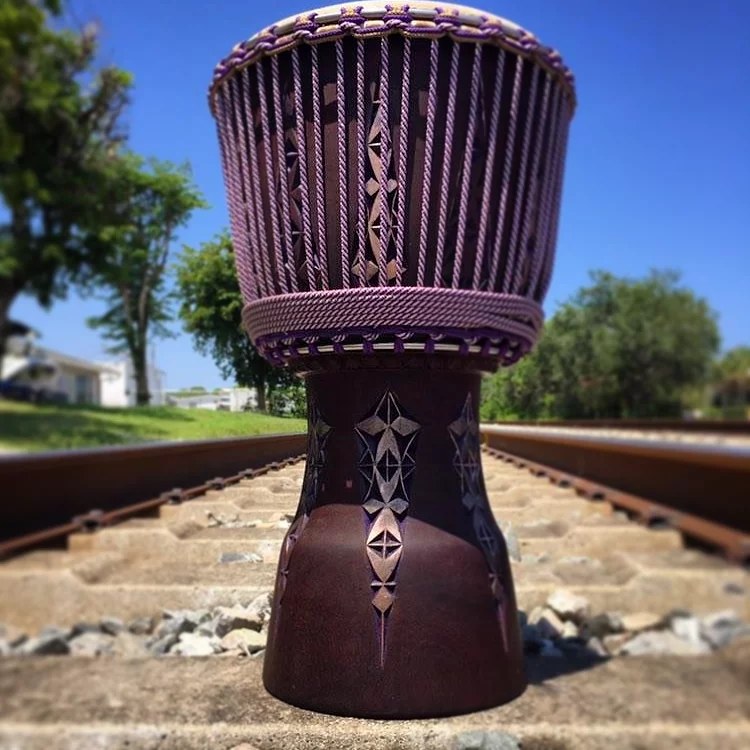The Journey of a Drummer: Embracing the Process
As a drummer, I’ve come to realize that the journey of learning is just as important as the destination. Each time I tackle a new rhythm or technique, it feels like a fresh challenge—a blank canvas inviting me to create. While mastering something new can be daunting, these moments inevitably force me to adapt and grow. They are the stepping stones that form the foundation of my drumming journey, a lifelong pursuit I’ve learned to embrace.
At times, I find myself grappling with self-doubt, questioning whether I will ever fully grasp a particular concept. Yet, with patience and persistent practice, I gradually see a shift. I’ll record myself playing, only to realize, with a mix of disappointment and determination, that I haven’t quite mastered it yet. So, I return to it the next day, convinced that today will be the day it finally clicks.
This process can span days, hours, or even weeks. There are concepts I’m still working on from 15-20 years ago, serving as constant reminders that music is not just about mastery—it is an endless journey. I have come to accept and celebrate this evolution, understanding that each setback enriches my experience and deepens my connection to the art form. It’s truly addicting.
My learning style is grounded in breaking things down into smaller, manageable steps and repeating them until they become second nature—bit by bit and piece by piece. I film myself or study under skilled teachers, jotting down notes and writing out what I’ve learned. This act of documenting my progress solidifies my understanding and equips me with a roadmap to navigate the complexities of rhythms and techniques.
People often ask me how I remember so many rhythms and techniques. The answer is straightforward: I learn one piece at a time. I focus on one part of the one piece, then the next part, and so forth, patiently unfolding each layer of sound until the entire composition comes together, regardless of how long that journey may take. I prioritize practice—every single day. Some days I dive into something new, while other times I revisit the tried and true, but the key is consistency in my commitment. It’s not a burden; it’s a joy. If I find myself stuck, I take a moment to breathe and seek ways to get unstuck.
My practice speed varies; I don’t limit myself to one tempo. Why? Because growth often happens when we push ourselves beyond our comfort zones. That discipline to vary my approach, to stretch my boundaries, can be the difference between stagnation and progression.
In this lifetime, especially at this age, it’s not about being the best player; it’s about being the best student I can be. Regularly reviewing the pieces I’m working on keeps me sharp, especially when prep for a session looms large on the horizon. Through my journeys, I’ve been fortunate to study under many talented teachers who have gifted me with invaluable wisdom. I recognize that not everyone has access to skilled mentors; many rely on videos and self-teaching. This privilege of instruction has profoundly shaped my path, starting in my childhood and continuing through my travels.
There is always more to learn, and even as I revisit old material, I often uncover fresh insights that propel me forward. I carry a sense of gratitude for this abundance of knowledge—enough, I feel, to last several lifetimes. This gratitude inspires me to share what I’ve learned, whether through videos, workshops, or conversations about various rhythms and techniques. It’s not about showcasing my greatness; it’s about introducing something that could inspire or assist someone else on their own journey.
Ultimately, my commitment is to being the best student I can be for myself, continually seeking out new information and learning from those who have walked the path before me. This journey involves humility, correcting my mistakes, and refining my skills, understanding deeply that the act of learning is an ongoing process that never truly ends.
This desire for growth leads me to reflect on the silent killer that affects us all: stress. Stress is not merely an external force; it is intimately tied to our choices and responses. It can feel overwhelming, but it’s essential to recognize that we hold the power to decide how to handle it. Many individuals struggle with feelings of unworthiness, believing they do not deserve happiness. Challenging these negative thoughts is vital, and embracing the belief that we all deserve joy and tranquility is essential for our well-being.
Drumming, as I’ve personally experienced, is not just about creating music; it is an effective outlet for stress relief, a therapeutic balm that nourishes the soul. After a long day, spending hours lost in the rhythm helps me manage stress and cultivate a sense of peace within. If you’re reading this, you likely understand the calming effects of drumming. If you haven’t yet explored this practice, now is the perfect time to start! Embrace drumming not only as a musical endeavor but also as a powerful tool for enhancing your mental and emotional well-being.
I want to clarify that while I’m passionate about sharing my insights, I am not a medical professional and don’t claim to have all the answers. My suggestions come from personal experience and are meant to be supportive and helpful. I understand that some face deeper, structural challenges, and I respect that. My intention is to foster an open dialogue, encouraging discussions around stress management and personal growth.
In conclusion, this journey we are all on is less about being the fastest, most skilled, or knowledgeable drummer in the world. It is about nurturing a lifelong desire to learn, to adapt, and to grow. Whether you are a seasoned drummer or just starting out, remember: the journey is just as meaningful as the destination. Embrace the process, stay curious, and let the rhythm guide you toward personal growth and fulfillment.

